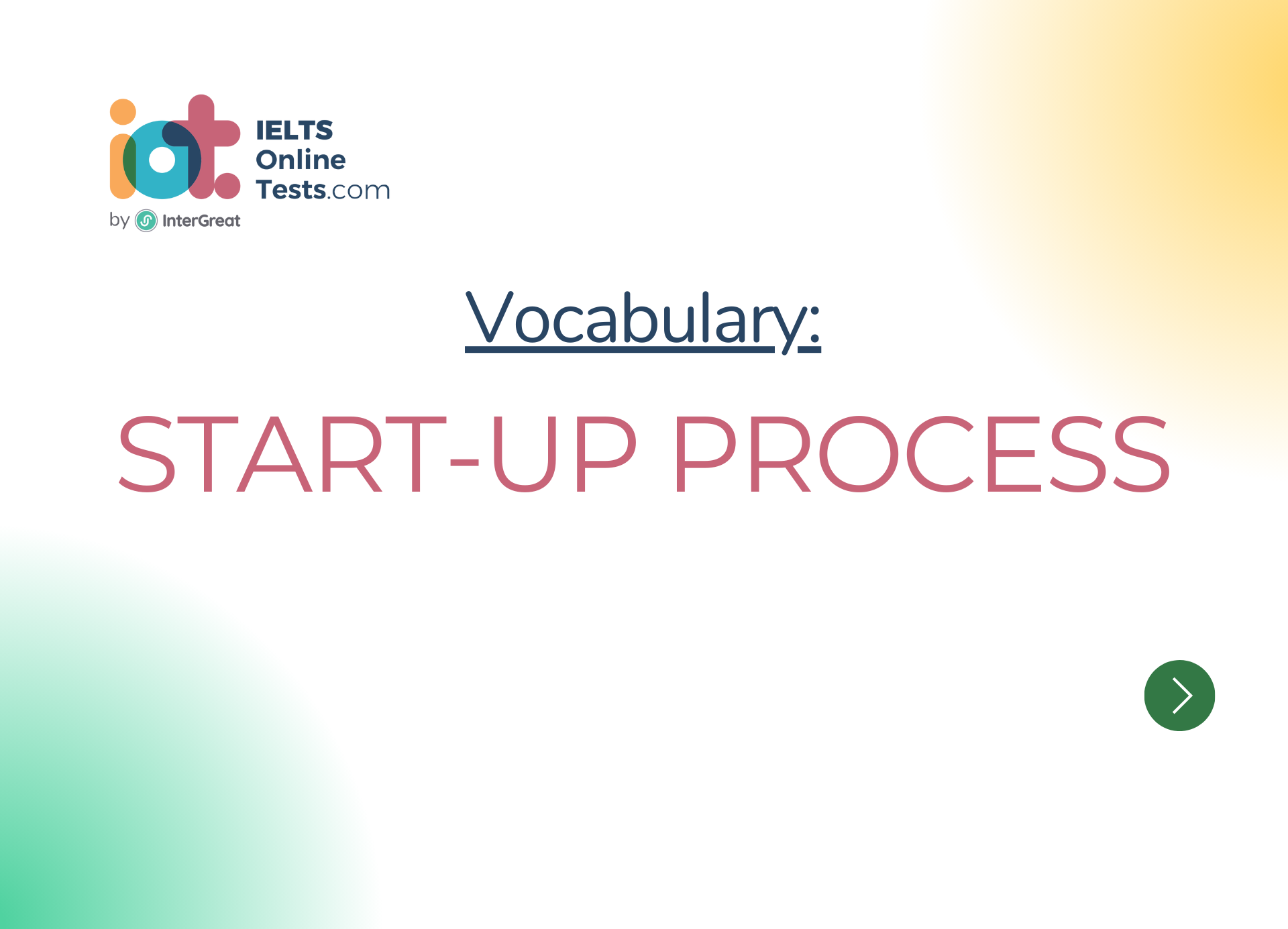
Start-up process
Here's a comprehensive list of vocabulary related to the start-up process for the IELTS band score 4.5-6.0:
Start-up:
A newly established business venture, typically characterized by innovation and growth potential.
Entrepreneurship:
The activity of setting up and running a business with the aim of making a profit.
Business Plan:
A written document outlining the goals, strategies, and financial forecasts for a start-up.
Innovation:
Introducing new ideas, products, or methods to the market.
Market Research:
The process of gathering and analyzing information about a target market.
Feasibility Study:
An assessment of the viability and potential success of a business idea.
Target Audience:
The specific group of people that a product or service is intended for.
Value Proposition:
The unique value that a product or service offers to customers.
Competitive Advantage:
Factors that set a business apart from its competitors.
Funding:
The financial resources required to start and operate a business.
Investor:
A person or entity that provides funding to a start-up in exchange for ownership or equity.
Pitch:
A presentation of a business idea to potential investors or stakeholders.
Prototype:
A working model of a product that is used for testing and development.
MVP (Minimum Viable Product):
The most basic version of a product that still meets the needs of early customers.
Scaling:
The process of growing and expanding a start-up to reach a larger market.
Revenue:
The income generated from sales of products or services.
Profit:
The amount remaining after deducting expenses from revenue.
Break-even Point:
The point at which a company's total revenue equals its total expenses.
Marketing Strategy:
The plan for promoting and selling a product or service.
Customer Acquisition:
The process of gaining new customers.
Customer Retention:
Strategies to keep existing customers and encourage repeat business.
ROI (Return on Investment):
The measure of the profitability of an investment.
Cash Flow:
The movement of money in and out of a business.
Bootstrapping:
Starting and growing a business without external funding.
Leverage:
Using borrowed funds or other resources to increase the potential return on investment.
Partnership:
A business structure where two or more individuals share ownership and responsibilities.
Legal Entity:
The formal structure under which a business operates (e.g., sole proprietorship, LLC, corporation).
Intellectual Property:
Legal rights to inventions, designs, or creative works.
Trademark:
A distinctive sign or symbol that identifies a product or service.
Patent:
Exclusive rights granted to an inventor for a new invention.
Copyright:
Legal protection for original works of authorship.
Niche Market:
A small and specialized segment of the market.
Disruption:
The process by which a new product or service displaces established competitors.
Pivot:
Changing the direction of a business based on customer feedback or market changes.
B2B (Business-to-Business):
The exchange of products or services between businesses.
B2C (Business-to-Consumer):
The exchange of products or services between businesses and individual customers.
SWOT Analysis:
An assessment of a business's strengths, weaknesses, opportunities, and threats.
Angel Investor:
An individual who provides capital to start-ups in exchange for equity ownership.
Venture Capitalist:
A firm or individual that invests in start-ups and small businesses with high growth potential.
Boot Camp:
Intensive training or mentorship programs for start-up founders.
These vocabulary words will help you discuss the different aspects of the start-up process, including planning, financing, marketing, and growth strategies. Best of luck with your IELTS preparation!




